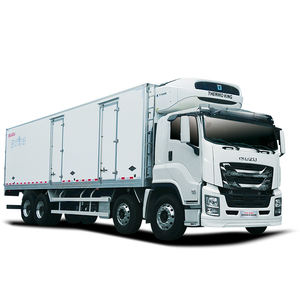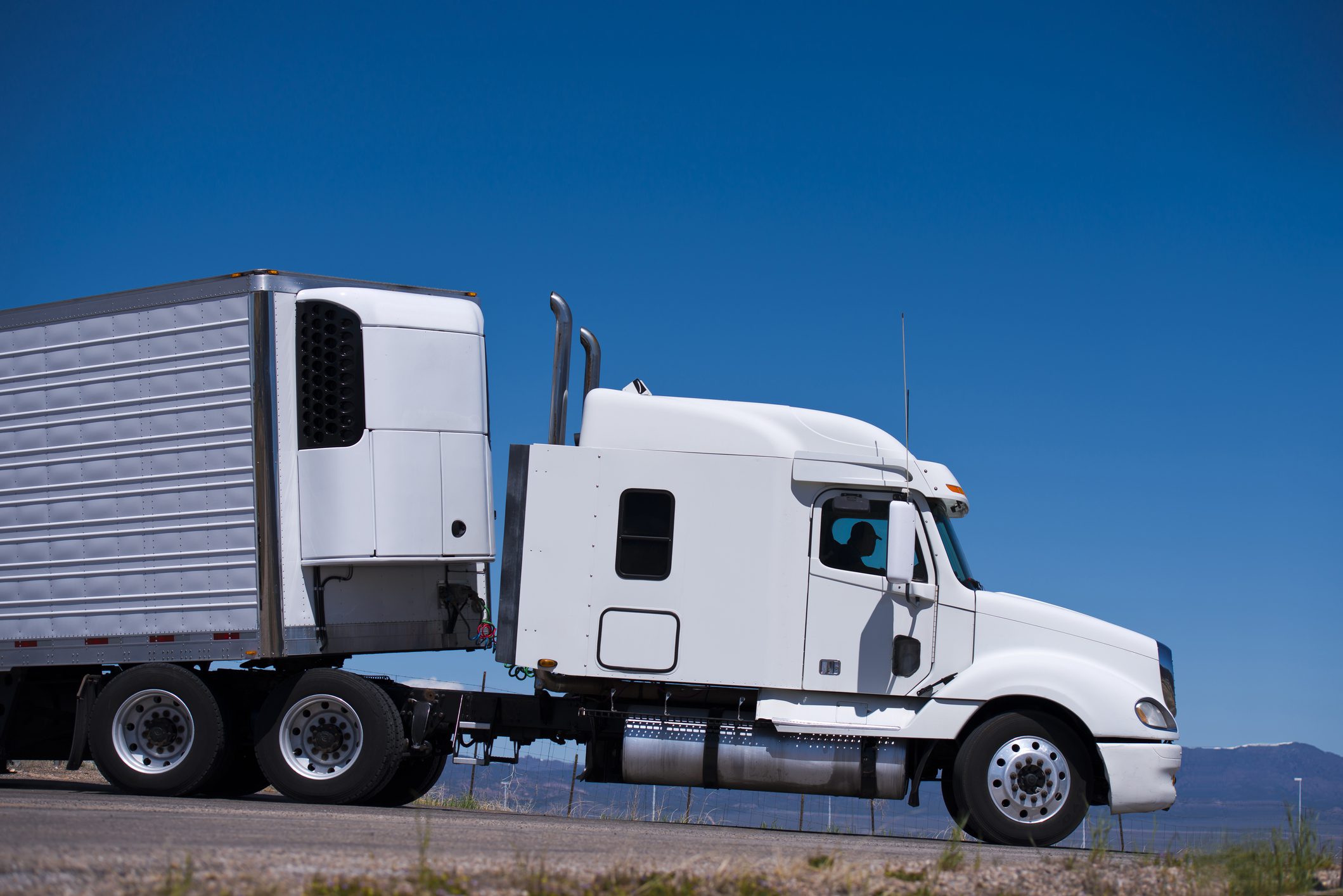Advanced Thermo King Truck Refrigeration Units for Dependable Shipment
Advanced Thermo King Truck Refrigeration Units for Dependable Shipment
Blog Article
Leading Advancements in Transport Refrigeration: Enhancing Efficiency and Safety And Security
The landscape of transportation refrigeration is undertaking substantial makeover, driven by advancements aimed at boosting both efficiency and security. As these advancements proceed to advance, it is vital to explore their ramifications on operational techniques and regulative conformity, triggering a better exam of how they improve the future of transport refrigeration.
Smart Temperature Level Keeping An Eye On Solutions
In the world of transportation refrigeration, clever temperature level tracking systems have become an essential development for making certain the stability of temperature-sensitive goods. These innovative systems utilize Web of Things (IoT) modern technology to offer real-time information on temperature variations, allowing drivers to preserve ideal problems throughout the supply chain. By continually tracking the temperature level of cooled containers and cars, firms can swiftly recognize variances that might endanger product top quality.

Furthermore, wise tracking systems typically include automated alerts and alerts, permitting stakeholders to react immediately to any type of prospective concerns. This positive approach not only minimizes the danger of perishing but additionally improves compliance with governing standards governing food safety and pharmaceutical transportation.
The integration of data analytics within these systems likewise helps with predictive upkeep, assisting drivers to predict possible tools failings prior to they occur. This ability reduces downtime and enhances functional efficiency, inevitably bring about set you back financial savings.
Eco-Friendly Refrigerants
Smart temperature monitoring systems play a crucial duty in maintaining product top quality, yet the effectiveness of transport refrigeration also rests on the option of cooling agents made use of. As ecological problems increase, the shift towards environment-friendly refrigerants has become important. Standard refrigerants, such as hydrofluorocarbons (HFCs), are infamous for their high Worldwide Warming Potential (GWP), contributing dramatically to climate adjustment. On the other hand, arising choices like hydrocarbon-based refrigerants and hydrofluoroolefins (HFOs) present reduced GWP options, offering both performance and sustainability.
These eco-friendly refrigerants not just reduce environmental impact however likewise align with global guidelines targeted at terminating dangerous materials. Their fostering can bring about boosted energy efficiency, ultimately reducing operating expenses for transportation refrigeration systems. Furthermore, using natural refrigerants, such as ammonia and co2, has gained grip due to their outstanding thermodynamic residential properties and reduced environmental footprint.
Spending in green refrigerants is not just a governing conformity procedure; it represents a strategic decision that improves brand name track record and cultivates client commitment. reefer trucks thermo king. By focusing on sustainable practices, companies can add to a greener future while guaranteeing the honesty of transferred items
Advanced Insulation Products
Using advanced insulation products is important for enhancing transport refrigeration systems, as they dramatically boost energy effectiveness and maintain consistent temperature control. Standard insulation approaches usually drop short in stopping thermal transfer, bring about increased power usage and varying temperatures within cooled compartments.
Arising materials such as vacuum cleaner insulated panels (VIPs) and aerogels offer superior thermal resistance, permitting thinner profiles without compromising efficiency. VIPs, for example, make use of a vacuum cleaner layer to lessen convective and conductive heat transfer, making them ideal for space-constrained applications. Aerogels, recognized for their light-weight and porous structure, offer outstanding insulation while significantly minimizing image source general system weight.
Additionally, integrating phase modification materials (PCMs) right into insulation systems can additionally stabilize temperature levels throughout transit. These materials soak up and release thermal power, effectively buffering versus exterior temperature variants.
The integration of these advanced insulation materials not only decreases the operational prices related to power intake but additionally prolongs the life span of temperature-sensitive products. As the transportation refrigeration market remains to develop, the adoption of innovative insulation modern technologies will certainly be critical in boosting both effectiveness and safety and security in chilled transportation.
Automated Route Optimization
The efficiency of transportation refrigeration systems is greatly improved via automated course optimization, which leverages real-time data and advanced algorithms to establish the most efficient paths for shipment. By examining various elements such as web traffic patterns, weather conditions, and shipment windows, these systems can significantly minimize traveling time and fuel consumption.
Automated course optimization reduces human mistake and subjective decision-making, which can result in inadequacies. Resources This modern technology allows fleet supervisors to allot resources better, guaranteeing that refrigerated items keep their required temperature level throughout the journey. By maximizing routes, business can additionally enhance client complete satisfaction via prompt distributions.
Additionally, automated systems can adapt to unforeseen scenarios, such as road closures or unexpected web traffic spikes, enabling dynamic rerouting. This flexibility not only safeguards the stability of temperature-sensitive items but also adds to overall operational efficiency.
Carrying out automated path optimization can lead to significant price savings while reducing the carbon impact linked with transport. As organizations increasingly prioritize sustainability, this development stands out as an important component in modern transportation refrigeration, aligning functional goals with ecological responsibility. Eventually, automated course optimization stands for a considerable improvement in the pursuit for efficiency and safety and security in transportation refrigeration.

Real-Time Information Analytics
Automated route optimization dramatically gain from the combination of real-time information analytics, which supplies important understandings into the efficiency of transport refrigeration systems. By making use of real-time data, transportation operators can keep an eye on temperature fluctuations and devices efficiency, making certain that subject to spoiling products are preserved within needed criteria throughout transit. This proactive method not only visit the site enhances the quality of the transported products but also reduces the risk of perishing and loss.

Along with boosting efficiency, real-time analytics enhances safety and security by making sure compliance with regulatory standards for temperature level control. This not just secures public wellness however also strengthens a company's online reputation - thermo king transport refrigeration. As the transportation refrigeration industry develops, the assimilation of real-time information analytics becomes a foundation for driving development, sustainability, and operational quality
Final Thought
In conclusion, the innovations in transportation refrigeration significantly boost both efficiency and safety within the sector. Smart temperature surveillance systems and real-time data analytics supply essential oversight, while eco-friendly refrigerants and progressed insulation materials add to sustainability and power efficiency. Automated path optimization formulas not just reduce travel time however additionally reduce ecological influence. Jointly, these developments represent a critical evolution in transport refrigeration, making certain conformity with regulatory standards and advertising a greener future.
The landscape of transport refrigeration is going through substantial transformation, driven by innovations aimed at enhancing both efficiency and safety.Smart temperature monitoring systems play a vital role in maintaining item top quality, yet the efficiency of transport refrigeration likewise hinges on the choice of cooling agents made use of. Their fostering can lead to improved energy efficiency, inevitably lowering operating prices for transportation refrigeration systems. Eventually, automated route optimization stands for a substantial improvement in the mission for efficiency and safety and security in transportation refrigeration.
In final thought, the developments in transport refrigeration dramatically improve both efficiency and safety within the sector.
Report this page